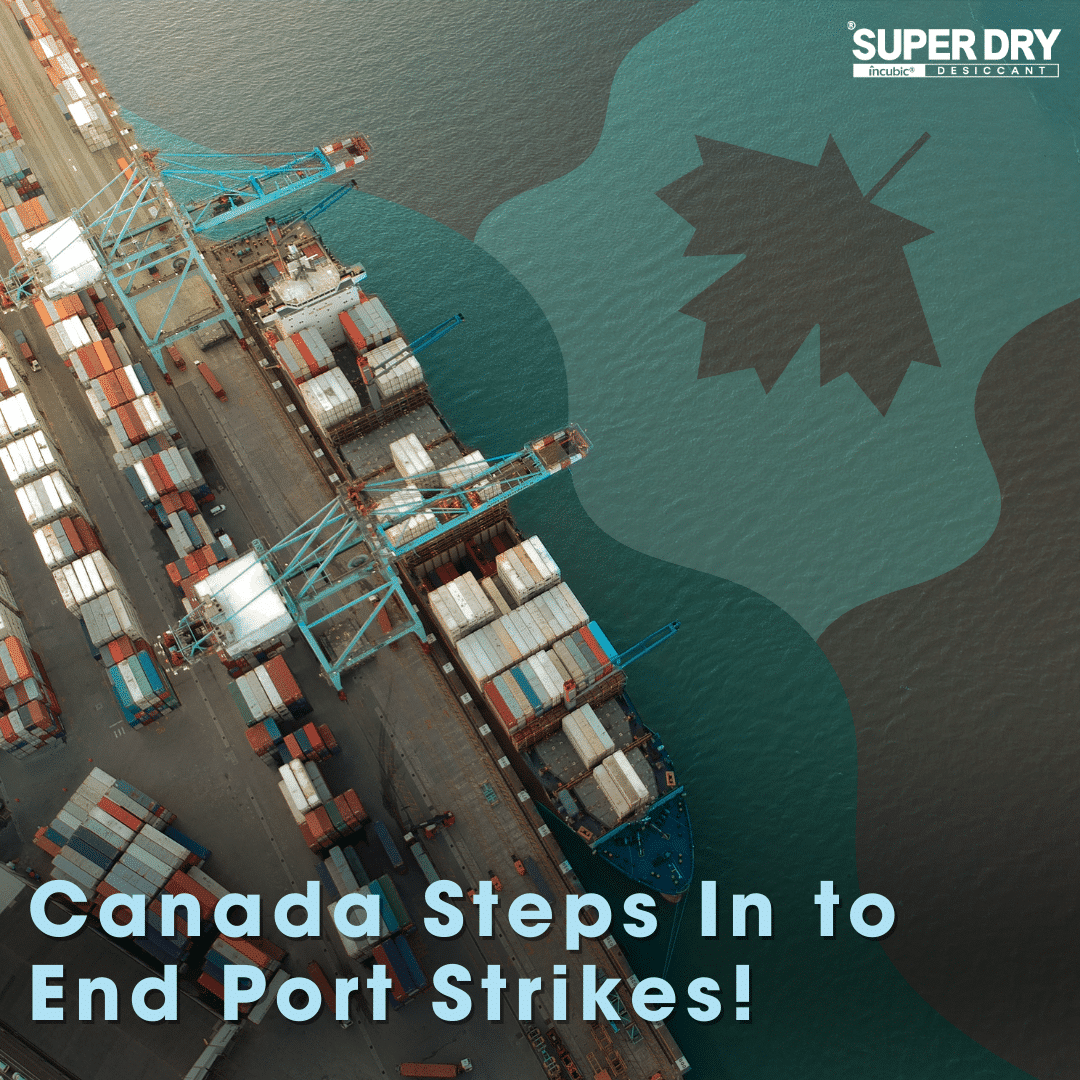Canada Moves to End The Port Strikes, Safeguarding Supply Chains

The Canadian government has taken action to bring an end to labor disputes at the country’s busiest ports, including Vancouver and Montreal, as prolonged disruptions risk significant economic consequences. Citing concerns over the growing impact on Canada’s supply chain and trade, the government moved to resume port operations and maintain the flow of goods.
This intervention marks the second time this year that Canada’s Liberal government has stepped in to resolve critical labor disputes affecting the nation’s transport and logistics. In August, it issued similar orders to end work stoppages at two major railway companies, ensuring the stability of essential services.
Government Steps In to Keep Goods Moving
Labour Minister Steven MacKinnon announced that he has directed the Canada Industrial Relations Board to end the port strikes and implement binding arbitration to settle remaining disputes. According to MacKinnon, the economic impact of the strikes, which has reached more than C$1.3 billion ($932 million) in daily trade value, necessitated swift action to prevent further delays.
“As the economic losses continue to grow, it is the government’s responsibility to protect Canada’s economic stability and ensure that Canadians’ livelihoods are not at risk,” said MacKinnon at a press conference.
The strikes had affected the movement of key exports, including canola oil and forest products, across Canada’s ports. Business groups and industry representatives welcomed the government’s decision to expedite the resumption of port activities.
A Push for Stability in Supply Chain Challenges
The Canadian government’s intervention reflects its commitment to maintaining stability within the supply chain, especially as businesses prepare for heightened demand during the winter season. This action is seen as part of a broader effort to ensure that Canada remains a reliable trade partner in the global market.
The labour ministry has emphasized its preference for resolving labor issues through negotiations and collective bargaining, but MacKinnon noted that federal mediators reported a deadlock in discussions, necessitating intervention.
Economic Impact on Key Canadian Industries
The port disruptions have had a considerable impact on Canadian industries, particularly those reliant on exports from the West Coast. The Montreal Longshoremen’s Union had recently rejected a final contract offer, leading to delays in essential exports, such as forest products and agricultural goods, which are significant contributors to Canada’s economy.
“These work stoppages have caused disruptions across our supply chain, impacting Canadian jobs, businesses, and our economy,” said MacKinnon. “This intervention will help restore operations and stability.”
The government’s decision to prioritize supply chain stability highlights the importance of uninterrupted trade for Canadian industries. As the Canada Industrial Relations Board enforces back-to-work orders, both employers and unions are expected to work towards a long-term resolution.
Supporting Businesses Through Supply Chain Challenges
Extended delays and disruptions increase the risk of product damage, particularly for goods vulnerable to moisture issues. Super Dry Desiccant provides essential moisture control solutions that help safeguard products during unpredictable transit times. With Super Dry, businesses can protect their goods from moisture damage, reducing losses and ensuring product quality, no matter how long the delays may last.
